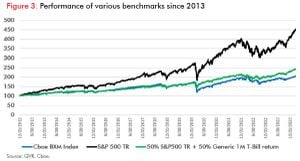On February 23, 2025, the German federal elections unfolded with significant political ramifications as the Union party emerged as the strongest force, sparking widespread discussions on potential coalitions and governance strategies. Leading commentators and political figures provided detailed analyses of the results, reflecting the shifting political landscapes and voter priorities.
Markus Preiß and Jessy Wellmer of the ARD reported live from Berlin, where they highlighted the winners and losers of the election. They shared insights on the probable coalitions and the political scenarios following the early election results. According to Hochrechnungen (initial projections), the Union party, led by Friedrich Merz, is expected to take the helm following their victory. Key political commentators noted the widespread belief among strategists about how the election results could reshape Germany's approach to governance.
Caren Miosga led discussions later on the evening of the election, expressing insights on coalition possibilities. Various political leaders and analysts assessed whether the Union and SPD (Social Democratic Party) could form what has often been referred to as the 'Grand Coalition', or if they would head toward different alliances like the Schwarz-Grün (Black-Green) coalition. Miosga emphasized the importance of coalition-building, especially considering the current political climate where migration and economic stability are predominant issues.
Jens Spahn, the deputy leader of the Union party, expressed aspirations for the party to secure over 30 percent of the vote, arguing for the necessity of a clear political shift. He stated, "Germany needs to be put back on track and regain the trust of its populace." This sentiment reflects the urgency for addressing voter concerns about efficiency and representation.
Meanwhile, Franziska Brantner, chair of the Greens, positioned her party as striving for the second strongest electoral position. She analyzed the ramifications of coalition negotiations and criticized remarks from Markus Söder, who has dismissed the possibility of co-governing with the Greens. Brantner argued for solidarity among democratic parties, stating, "It is imperative to close ranks against any populist and autocratic movements creeping within our political systems." Her call underlines the Greens' proactive stance and their investment in shaping Germany's future governance models.
On the other hand, Alexander Schweitzer, the Minister-President of Rhineland-Palatinate from SPD, faces the grim possibility of his party achieving one of its lowest electoral results. He urged the need for the SPD to discuss internally and constructively with possible coalition partners to maintain their influence after the elections. His remarks signal the prioritization of strategic alliances amid heightened competition for voter loyalty.
Dagmar Rosenfeld, co-editor of The Pioneer, produced compelling analyses of the electoral results and possible coalition scenarios. She foresaw significant voter mobility, particularly from SPD supporters toward the far-right Alternative for Germany (AfD). "The new administration must strive for consensus and have the resilience to navigate through crises effectively," Rosenfeld urged, expressing concerns about the potential fragmentation of the political fabric if the SPD could not secure its footing.
It remains to be seen how quickly Germany's new government can be formed as discussions and negotiations will undoubtedly dominate the political agenda. The results of the 2025 federal election will not only shape party dynamics but will also influence the country's stance on key issues for the coming years.
The morning following the election, reaction from international figures was noted, with the Ukrainian President Volodymyr Zelensky reportedly indicating readiness to relinquish his current post to expedite Ukraine's NATO membership. This statement adds another layer of complexity to Germany's role within the European political sphere.
Analysts agree the timing of the election and its aftermath are pivotal for Germany, as economic challenges loom and public sentiment around migration heats up. Political experts are observing closely, eager to see if the results will prop up more stable governmental structures or drive divisions among the parties.
With coalition talks on the horizon, party leaders and analysts alike will be examining not only the numerical outcomes but also voter sentiment and how each party can best position itself for future electoral success. The political conversations sparked by the 2025 federal elections will likely influence Germany's policies on both national and international fronts.



